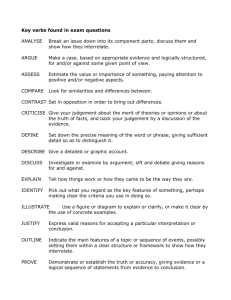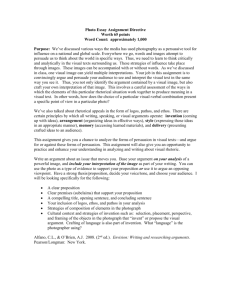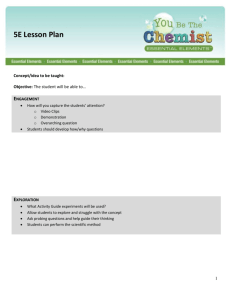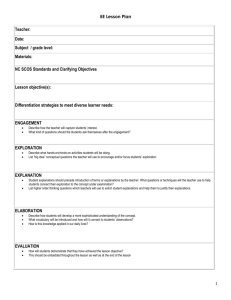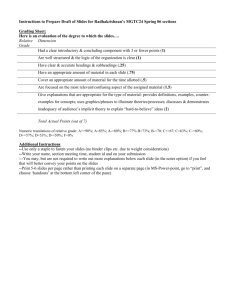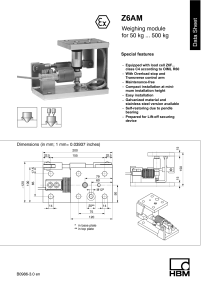Essay Instruction Terms
advertisement
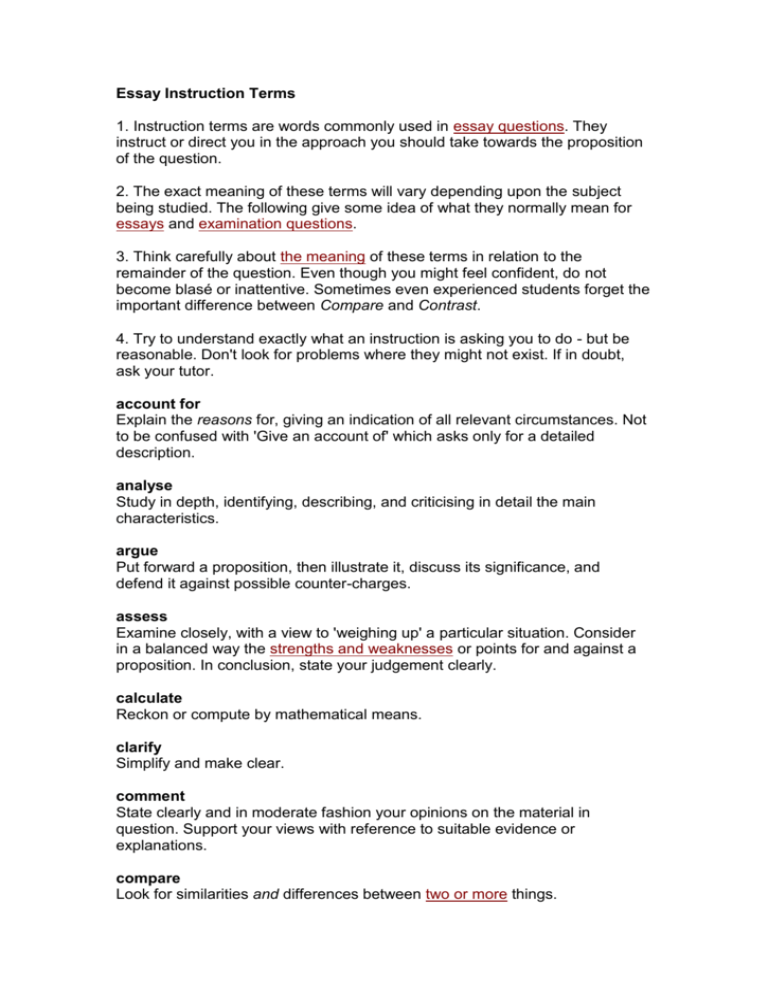
Essay Instruction Terms 1. Instruction terms are words commonly used in essay questions. They instruct or direct you in the approach you should take towards the proposition of the question. 2. The exact meaning of these terms will vary depending upon the subject being studied. The following give some idea of what they normally mean for essays and examination questions. 3. Think carefully about the meaning of these terms in relation to the remainder of the question. Even though you might feel confident, do not become blasé or inattentive. Sometimes even experienced students forget the important difference between Compare and Contrast. 4. Try to understand exactly what an instruction is asking you to do - but be reasonable. Don't look for problems where they might not exist. If in doubt, ask your tutor. account for Explain the reasons for, giving an indication of all relevant circumstances. Not to be confused with 'Give an account of' which asks only for a detailed description. analyse Study in depth, identifying, describing, and criticising in detail the main characteristics. argue Put forward a proposition, then illustrate it, discuss its significance, and defend it against possible counter-charges. assess Examine closely, with a view to 'weighing up' a particular situation. Consider in a balanced way the strengths and weaknesses or points for and against a proposition. In conclusion, state your judgement clearly. calculate Reckon or compute by mathematical means. clarify Simplify and make clear. comment State clearly and in moderate fashion your opinions on the material in question. Support your views with reference to suitable evidence or explanations. compare Look for similarities and differences between two or more things. consider Express your thoughts and observations about something. contrast Deliberately single out and emphasise the differences and dissimilarities criticise Give your judgement about a statement or a body of work; explore its implications, discussing all the evidence which is available. Be specific in your examination. define Set down the precise meaning of something. Be prepared to state the limits of the definition. Take note of multiple meanings if they exist. demonstrate Show how, and prove by giving examples. describe Give a detailed and comprehensive account of. develop Expand on something, taking it further. distinguish Explain the differences between. discuss Investigate and examine by careful argument. Explore the implications and the advantages or disadvantages. Debate the case and possibly consider any alternatives. This is probably the most common instruction term. It is inviting you to say something interesting in response to the topic in question. You can choose your own approach. elaborate Add further details to something. enumerate Make an ordered list, giving the main features or general principles - and omitting details. evaluate Make an appraisal of the worth of something in the light of its truth or utility. Emphasise the views of authorities as well as your personal estimation. examine Enquire into, attempt to discover, investigate, look closely into something. expand Go into more detail. explain Make plain. Account for. Clarify, interpret, and spell out the material you present, giving reasons for important features or developments. explore Approach in a questioning manner, and consider from a variety of viewpoints. give an account of Describe in some detail, and explain fully. how In what way, by what means or method, or to what extent. how far ... Similar to questions which begin 'To what extent...'. You are expected to make your case or present your argument, whilst showing an awareness that alternate or even contradictory explanations may exist. Careful assessment and weighing of evidence are called for. identify Pick out the key features or important issues of something. illustrate Make clear and explicit by the discussion of concrete examples. interpret Explain the meaning of something, make clear and explicit - using your own judgement, experience, or opinion. justify Show adequate grounds for decisions or conclusions. Answer or refute the main objections likely to be made against them. list Make a list or catalogue of things. outline Give the main features or the general principles of a subject, omitting minor details and emphasising structure or arrangement. prove Demonstrate the truth or falsity of something, by presenting evidence. relate Show how things are connected, and how they possibly affect, cause, or resemble each other. review Make a survey of, examining the subject critically. show Reveal or disclose (in some form of logical sequence). state Present the main points in brief, clear form. summarise Give a concise account of the main points of a matter, omitting details and examples. to what extent Similar to questions which begin 'How far...'. You are expected to make your case or present your argument, whilst showing an awareness that alternate or even contradictory explanations may exist. Careful assessment and weighing of evidence are called for. trace Follow the development or history of a topic from some point of origin. Explain stage by stage. translate Express in a different form, or convert from one language to another. verify Show to be true, or confirm.
